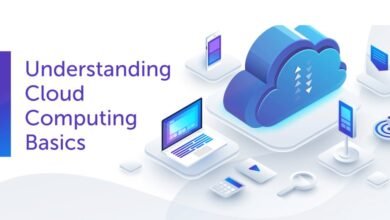
Future of PC Gaming is rapidly transforming the landscape of interactive entertainment, raising an important question: Will it become the dominant way we experience Future of PC Gaming? By shifting heavy computational tasks from local hardware to remote servers, cloud gaming eliminates the need for expensive GPUs and CPUs, making high-end gaming accessible to anyone with a stable internet connection. Services like NVIDIA GeForce NOW, Xbox Cloud Gaming, and Amazon Luna are gaining momentum, offering instant access to vast libraries of games without downloads or installations.
As technology advances, the debate over cloud gaming’s role in the Future of PC Gaming intensifies. While it offers undeniable benefits such as affordability, convenience, and cross-platform flexibility it must overcome hurdles like input lag, data consumption, and licensing restrictions to become the primary gaming medium. The gaming industry is at a crossroads, with some experts predicting a gradual shift toward streaming, while others believe dedicated hardware will remain essential for the best experience. By analyzing current trends, technological advancements, and consumer preferences.
Is Cloud Gaming the Future of PC Gaming
The Evolution of Cloud Gaming
The concept of cloud gaming is not entirely new. Early attempts, such as OnLive and Gaikai, emerged in the late 2000s, offering game streaming long before modern infrastructure could support it reliably. These pioneering services struggled with latency and image compression, ultimately fading into obscurity. However, the foundational idea decoupling gaming performance from local hardware remained compelling.
Rise of 5G Networks
Today, advancements in broadband speeds, server technology, and video compression have revitalized cloud gaming. Companies like Microsoft, NVIDIA, and Sony have invested heavily in their respective platforms, leveraging massive data centers to deliver seamless gameplay. The rise of 5G networks further enhances the potential for low-latency streaming, making cloud gaming more viable than ever before.
Accessibility and Lower Entry Barriers
One of the most significant benefits of cloud gaming is its ability to democratize high-end gaming. Traditionally, playing the latest AAA titles required a powerful PC with an expensive GPU, a luxury many cannot afford. Cloud gaming removes this financial hurdle by allowing users to stream games on low-end devices, including laptops, tablets, and even smartphones.
Instant Play Without Downloads or Updates
Unlike traditional gaming, where players must download large in Future of PC Gaming files and wait for updates, cloud gaming enables instant access. This convenience is particularly appealing for gamers with limited storage or slow download speeds. Services like Xbox Cloud Gaming and GeForce NOW let users jump into games within seconds, eliminating tedious installation processes.
Cross-Platform Flexibility
Another major advantage is the ability to play across multiple devices seamlessly. A player can start a game on their PC, continue on a phone during a commute, and finish on a smart TV all without losing progress. This flexibility aligns with modern gaming habits, where mobility and convenience are increasingly prioritized.
No Need for Hardware Upgrades
PC gamers often face the burden of frequent hardware upgrades to keep up with evolving game requirements. Cloud gaming eliminates this concern, as all processing occurs on remote servers. Players no longer need to worry about GPU shortages or compatibility issues, as the service provider handles all performance optimizations.
Challenges Facing Cloud Gaming
Ownership and Licensing Concerns
Unlike traditional Future of PC Gaming, where players own physical or digital copies of their games, cloud gaming relies on subscription models. If a service shuts down as seen with Google Stadia players lose access to their entire library. This lack of permanent ownership is a major drawback for collectors and long-term gamers.
Latency and Input Lag
Even with high-speed internet, latency remains a critical issue. Competitive gamers, especially in fast-paced titles like Counter-Strike or Fortnite, rely on split-second reactions. Input lag no matter how minimal can disrupt gameplay, making cloud gaming less appealing for professional or hardcore gamers.
Internet Dependency and Data Consumption
A stable, high-bandwidth connection is mandatory for smooth cloud gaming experiences. Rural areas with poor internet infrastructure may struggle with inconsistent performance. Additionally, streaming high-quality games consumes significant data, which can be problematic for users with data caps or metered connections.
Limited Modding and Customization
Future of PC Gaming is renowned for its modding community, allowing players to customize games with user-created content. Cloud gaming platforms often restrict such modifications, limiting creative freedom and personalization options that many PC gamers cherish.
Hybrid Gaming Models
Microsoft’s Xbox Game Pass Ultimate exemplifies this trend by offering both downloadable and streamable games. Players can choose between local hardware for optimal performance or cloud streaming for convenience. This flexibility ensures that cloud gaming complements rather than replaces traditional setups.
Technological Improvements
Advancements in edge computing and AI-driven compression could further reduce latency, making cloud gaming nearly indistinguishable from local play. As internet infrastructure improves globally, more players may adopt streaming as a primary gaming method.
Exclusive Cloud-Based Titles
If major developers release cloud gaming-exclusive titles, the platform could gain more traction. However, this strategy carries risks, as seen with Google Stadia’s failed exclusives. Convincing players to embrace streaming-only games remains a challenge.
The Role of VR and Cloud Gaming
Virtual reality (VR) gaming demands high-performance hardware, making it an ideal candidate for cloud gaming. If VR headsets can offload processing to remote servers, the technology could become more accessible, accelerating adoption. However, current latency challenges must be overcome to ensure smooth, immersive gameplay in cloud-based VR systems.
Read More: How Quantum Computing Could Impact U.S. Industries
Conclusion
Cloud gaming represents a significant leap forward in making high-end gaming more accessible and convenient. Its ability to eliminate hardware barriers and provide instant access to games positions it as a formidable force in the industry. However, challenges like latency, internet dependency, and ownership concerns prevent it from fully replacing traditional Future of PC Gaming in the near future. The Future of PC Gaming industry is evolving toward a hybrid model where cloud gaming and traditional Future of PC Gaming coexist rather than compete directly.
Instead of an outright takeover, cloud gaming is likely to coexist with local hardware, offering players more choices based on their preferences and needs. As technology continues to evolve, the line between streaming and traditional gaming may blur, creating a more inclusive and flexible gaming ecosystem. Whether cloud gaming becomes the definitive future of PC gaming depends on how well it addresses its current limitations while adapting to gamers’ ever-changing demands.
FAQs
What is cloud gaming?
Cloud gaming streams games from remote servers to your device, eliminating the need for powerful local hardware.
Do I need a high-end PC for cloud gaming?
No, cloud gaming allows you to play on low-end devices as long as you have a stable internet connection. The games run on remote servers, so your local device only needs to handle video streaming.
Is cloud gaming better than traditional Future of PC Gaming?
It depends cloud gaming offers convenience and accessibility, but traditional gaming provides better performance and ownership in Future of PC Gaming.
What internet speed is required for cloud gaming?
A minimum of 15-25 Mbps is recommended for smooth 1080p streaming, with higher speeds needed for 4K. Wired Ethernet or 5GHz Wi-Fi is recommended for the best experience.
Will cloud gaming replace gaming PCs?
Not entirely while it will grow in popularity, many gamers will still prefer local hardware for the best experience. However, it will likely coexist as a convenient alternative for casual gamers and those without high-end hardware.











